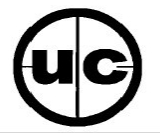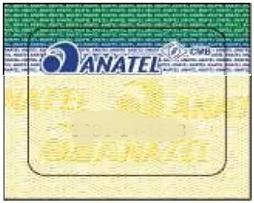Hello,Welcome to Normal Website!
Hello,Welcome to Normal Website!

Contact US
Tell:+86-571-85691658
Fax:+86-571-28867000
E-mail:service@normaltci.com
Address:North block, 9 block,, Jiangling, Binjiang District, Hangzhou, Zhejiang

Product Certification

Brazilian UC certification

razil proposes to establish ROHS regulations
The National Institute of Meteorology, Standardization and Industrial Quality (INMETRO) is the Brazilian national accreditation body responsible for developing national standards.
According to the 371 decree issued by Brazil, starting from July 1, 2011, household and related electrical products (such as kettles, irons, vacuum cleaners, etc.) sold to Brazil must undergo INMETRO mandatory certification. The third chapter of the law stipulates the mandatory certification of household appliances, and product testing must be conducted in INMETRO accredited laboratories, each with a designated product scope.
At present, product certification in Brazil is divided into two types: mandatory certification and voluntary certification. The products subject to mandatory certification include medical devices, circuit breakers, equipment used in hazardous areas, household plugs and sockets, household switches, wires and cables and their components, fluorescent lamp ballasts, etc. The above certifications must be conducted by certification bodies recognized by INMETRO, and other certifications are not accepted.
371 Law Enforcement Schedule
According to the 371 ordinance of December 29, 2009, household appliances sold to Brazil and applicable to the IEC60335-1&IEC 60335-2-x standards must comply with the requirements of the ordinance. For manufacturers and importers, this regulation provides a three-stage timetable for specific implementation. The specific timetable is as follows:
Starting from July 1, 2011, manufacturers and importers are required to produce and only import certified equipment.
Starting from July 1, 2012, manufacturers and importers can only sell certified equipment to the retail/wholesale industry.
Starting from January 1, 2013, the retail/wholesale industry can only sell certified equipment.
In addition to complying with the Brazilian standards established by INMETRO, Brazilian products must also bear mandatory INMETRO marks and marks from certification and accreditation bodies, such as UL-BR marks.
According to INMETRO (Brazilian Certification Authority) regulations, products that meet Brazil's mandatory certification qualifications must obtain this mark.
The application of the UC logo is divided into voluntary certification and mandatory certification.
Requirements for car mobile phone charger:
Car mobile phone chargers will be required to apply for ANATEL certification from January 6, 2018
On July 10, 2017, the Brazilian National Telecommunications Authority (ANATEL) issued a new technical regulation Act 493, which updated the testing terms and certification requirements for mobile phone chargers.
The new 493 regulation covers the following types of mobile phone chargers, all of which require mandatory application for ANATEL certification and are classified as Category I with a certificate validity period of 1 year:
-Mobile phone charger connected to the main power source via wired connection (powered by AC/DC adapter, etc.)
-Wireless induction mobile phone charger, also known as WPT (powered by AC/DC adapter, etc.)
-Car mobile phone charger (12Vdc or 24Vdc)
-Car mounted wireless induction charger
Among them, it is worth noting that:
1. Car mobile phone chargers (12 Vdc or 24 Vdc) have been newly included in ANATEL's regulatory scope, with a transition period of 180 days after the regulation is issued, which will be mandatory from January 6, 2018.
2. The wireless induction charger, originally defined as a Category II (valid for 2 years) product, is now subject to the new regulation Act After the 493 edition, it was redefined as Category I (valid for 1 year). It is recommended that customers apply for certificate renewal at least 5 months before the original certificate expires, and need to resubmit samples for testing in accordance with the new regulation 493.
When testing a mobile phone charger, the manufacturer needs to provide a matching mobile phone as an auxiliary device.
4. The CoC certificate can only reflect the model of one mobile phone charger and must indicate the maximum input and output voltage and current.
5. The charger needs to be labeled with an safety seal that matches the specifications and model in the ANATEL certificate.

Razil issues a notice to revise the qualification assessment procedure for LED lights
The Brazilian National Institute of Metrology, Quality and Technology (INMETRO) issued Notice G/TBT/N/BRA/609/Add. 5 on April 9, 2018, revising the INMETRO 144/2015 regulation to improve the traceability of LED lights sold in the Brazilian market and facilitate market supervision.
Revised content
Art. 1 º It is not allowed to use prototype samples (i.e. prototypes) for INMETRO certification of LED bulbs and tubes;
Before the certification process begins, it is not allowed to collect samples for testing in advance;
Art. 3 º Each certification for the same series of products must have its own testing data and reports, which must be independently sampled, tested, and reported. The testing methods and reports must comply with the requirements of INMETRO 144/2015 regulations.
The content of "C.2 Maintenance Testing" in Appendix C of Regulation INMETRO 144/2015 has been adjusted as follows:
C. Maintenance testing ": Test samples must be collected within the territory of the trading country; OCP should determine the manufacturing date of the product on the authorization date or after the last maintenance test; Before completing the testing of samples in the same series, it is advisable to collect all samples in advance.
LED lights produced before the publication of this regulation shall comply with the provisions of Articles 1-4 of this regulation within 8 months from the date of publication of this regulation.
The other contents of Regulation No. INMETRO 144/2015 remain unchanged.
Article 7: This regulation shall come into effect from the date of its publication in the Official Gazette of the Union.
China is the world's factory for lighting electrical products, producing lighting products that are sold to 220 countries and regions, with a global market share of over 50%. In 2017, the total export value of the entire industry reached 41.2 billion US dollars, of which the export value of LED tube lamps reached 1.3 billion US dollars, accounting for 11% of the total export value of all types of lamps in 2017. The top three export markets are the United States (36%), Japan (7%), and Brazil (5%). The implementation of this regulation may have an impact on the production or sales enterprises of LED lighting products exported from our province to Brazil. Related export enterprises can obtain the original Brazilian lighting regulations through relevant departments such as the WTO/TBT Notification Consultation Center and the BRICS Standardization Research Center in our province, consult the latest requirements of the regulations, and make production adjustments before the implementation of the regulations. At the same time, timely feedback on unreasonable regulatory requirements should be provided through the provincial or national WTO/TBT notification and consultation center.
Brazil issues a notice to revise the qualification assessment procedure for gloves
1. Testing requirements
The testing requirements for surgical gloves in sections 6.1, 6.2, and 6.3 of the regulations have been adjusted from the original ISO 10282:2005 to the corresponding clauses of ISO 10282:2014, while non-surgical gloves have been adjusted from the original NBR ISO 11193-1:2009 to NBR ISO 11193-1:2015.
2. Packaging and label verification
The packaging requirements for gloves have been adjusted from ISO 10282/2005 and ABNT NBR ISO 11193-1/2009 to ISO 10282/2014 and ABNT NBR ISO 11193-1/2015, respectively. Among them, the content of item m on the packaging label of unsterilized gloves that require disinfection, as well as the content of item n on the packaging label of sterilized (disinfected) gloves during packaging and transportation, have been added with "or 'contains natural latex, may cause allergies'" (ou "CONT É M L Á TEX NATURAL. PODE CAUSAR ALERGIA").
3. Microbial requirements
The physical and microbiological testing requirements for glove testing have been adjusted from ISO 10282/2005 (surgical use) and ABNT NBR ISO 11193-1/2009 (non-surgical use) to ISO 10282/2014 and ABNT NBR ISO 11193-1/2015, respectively. After adjustment, the requirement for airtightness and sterility testing of non-surgical gloves has been cancelled, and only the sterile and non sterile testing requirements for surgical gloves, as well as the non sterile testing requirements for non-surgical gloves, will be retained.
Please consult NormalTCI for specific questions
National service hotline: 400-6177-880
Email:service@normaltci.com
Copyright @ 2015 NORMAL (HANGZHOU) TESTING & CERTIFICATION CO., LTD.
Tell:+86-571-28906690 E-mail:service@normaltci.com Service Hotline:400-6177-880 Fax:+86-571-28867000
If you have any comments on the website, please email to:service@normaltci.com